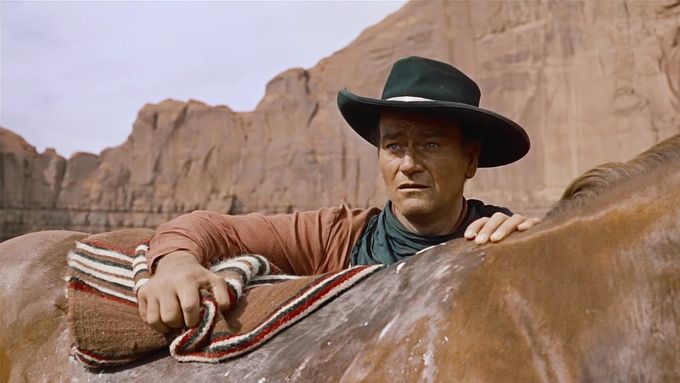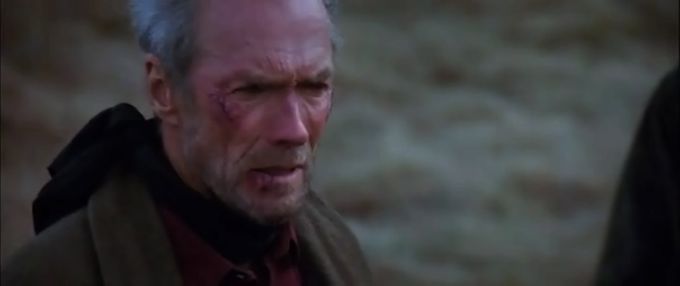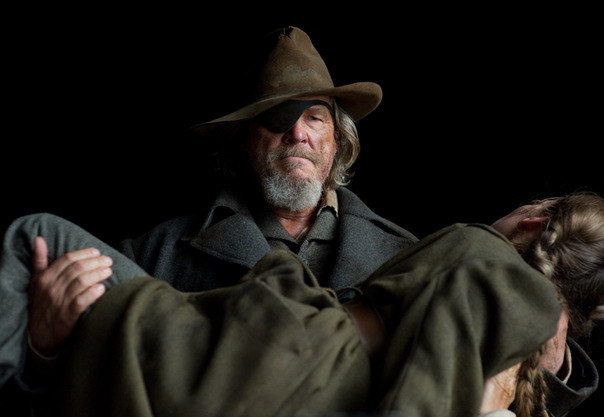
Facebook friend Ray Sawhill has a theory that classic Westerns deal with the themes of shame and honor, which began to feel old-hat in the Sixties when movies shifted more and more to the paradigm of guilt and therapy, following trends in the culture at large.
This wasn’t a universal trend, however — even though it came
to dominate Hollywood (which still has a strong culture of guilt and
therapy) as well as various other self-styled cultural elites — because
whenever a Western dealing with the themes of shame and honor has
managed to slip past the Hollywood gatekeepers, it has invariably found
a big audience. See Unforgiven and the new True Grit, for example.

As I see it, the difference between shame and guilt in this context would be — shame is something you feel because of your own failings, while guilt can be seen as something imposed on you unfairly by others. The difference between honor and therapy would be — honor requires you to make moral choices and take moral actions, while therapy can be seen as something you pay for with cash and consume passively, without the intervention of moral thought.
Therapy strives for vindication and healing — honor strives for redemption, and redemption is the theme of almost every great Western.

You have to have unusual power and authority in Hollywood to get a shame-and-honor Western made, you have to be Clint Eastwood or the Coen brothers, because the industry simply doesn’t understand such movies, and to the degree that it does understand them, it hates them, even when they make a lot of money — perhaps especially when they make a lot of money. If there ever is a full-scale revival of the traditional Western, it will have to originate outside of Hollywood.

I *love* this take on westerns, and now am wondering if there’s a way to weave a little of it into my work-in-progress. How does shame-and-honor work in a humorous story, I wonder? They’re definitely concepts with more moral heft than guilt-and-therapy. Thanks for sharing!
Can’t see any reason that shame and honor couldn’t be treated in a humorous story. Think of Buster Keaton’s “The General”, for example — his character is shamed by not being allowed to enlist in the army, because he’s more valuable driving a train, but then he gets to use his train to become a full-fledged war hero. I’m sure there are lots of other examples.